Pneumatic tubes were way, way cooler than email.
Of course, you could only use them to send a message to someone in the same office building, so the comparison isn’t perfect… but you know what I mean.
1) Be nice and; have fun
Doxxing, trolling, sealioning, racism, and toxicity are not welcomed in AskLemmy. Remember what your mother said: if you can't say something nice, don't say anything at all. In addition, the site-wide Lemmy.world terms of service also apply here. Please familiarize yourself with them
2) All posts must end with a '?'
This is sort of like Jeopardy. Please phrase all post titles in the form of a proper question ending with ?
3) No spam
Please do not flood the community with nonsense. Actual suspected spammers will be banned on site. No astroturfing.
4) NSFW is okay, within reason
Just remember to tag posts with either a content warning or a [NSFW] tag. Overtly sexual posts are not allowed, please direct them to either !asklemmyafterdark@lemmy.world or !asklemmynsfw@lemmynsfw.com.
NSFW comments should be restricted to posts tagged [NSFW].
5) This is not a support community.
It is not a place for 'how do I?', type questions.
If you have any questions regarding the site itself or would like to report a community, please direct them to Lemmy.world Support or email info@lemmy.world. For other questions check our partnered communities list, or use the search function.
6) No US Politics.
Please don't post about current US Politics. If you need to do this, try !politicaldiscussion@lemmy.world or !askusa@discuss.online
Reminder: The terms of service apply here too.
Logo design credit goes to: tubbadu
Pneumatic tubes were way, way cooler than email.
Of course, you could only use them to send a message to someone in the same office building, so the comparison isn’t perfect… but you know what I mean.
I'm not crazy old, but I'm old enough that the supermarket I went to as a kid had these at all the checkout aisles and the cashiers would use them to send cheques/reciepts/ whatever.
It was awesome to see.
Some downtown big cities had the buildings interconnected.
Prague had a large pneumatic post system which operated for 100+ years.
I like the look of vacuum-fluorescent displays (VFDs) -- a high-contrast display with a black background, solid color areas. Enough brightness to cause some haloing spilling over into the blackness if you were looking at it. Led to a particular design style adapted to the technology, was very "high-tech" in maybe the 1980s.
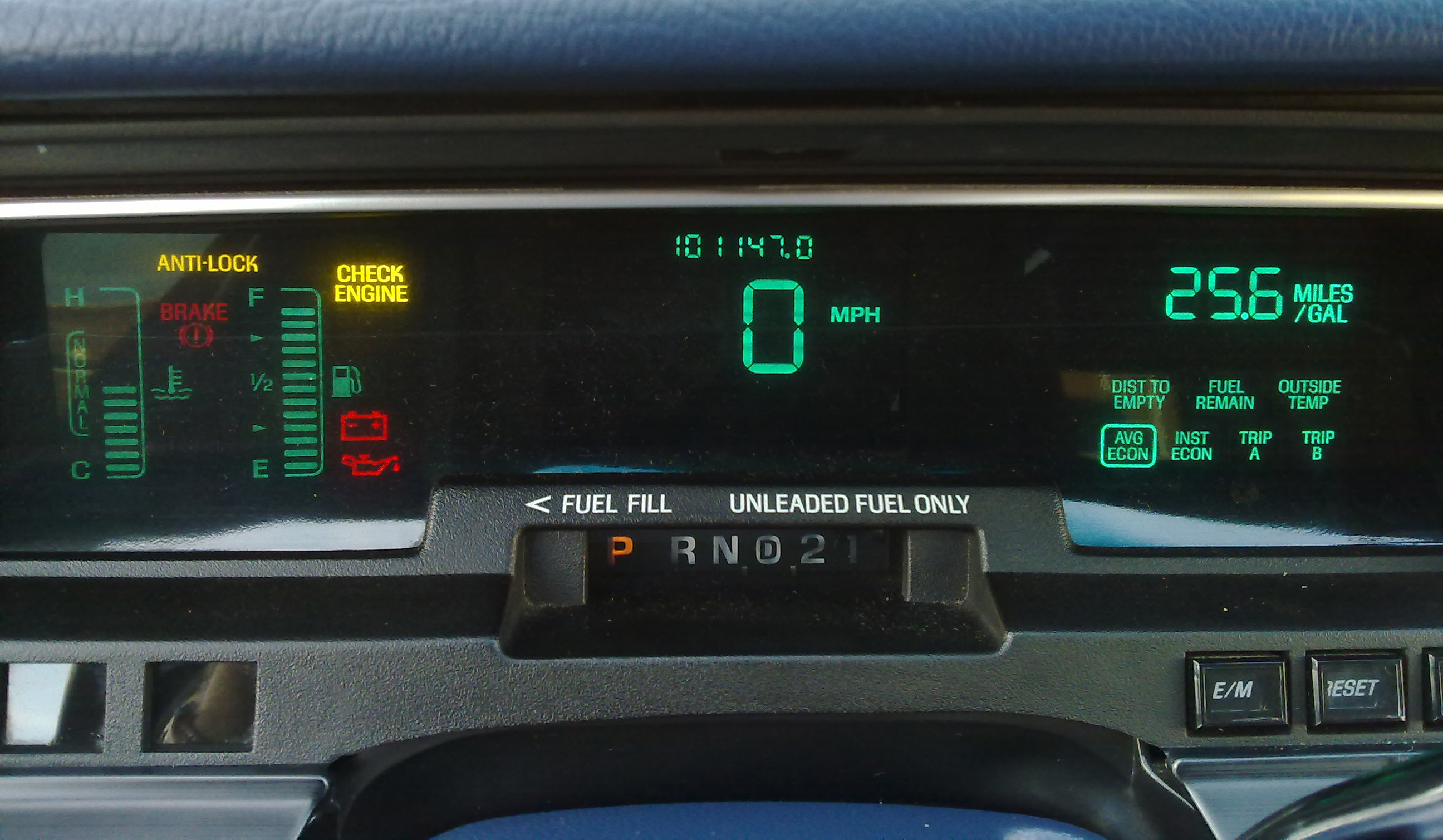
OLEDs have high contrast, and I suppose you could probably replicate the look, but I doubt that the style will come back.
https://en.wikipedia.org/wiki/Vacuum_fluorescent_display
EDIT: A few more car dashboards using similar style:
https://s3.amazonaws.com/skillshare/uploads/session/tmp/50c99738
https://www.pinterest.com/hudsandguis/retro-car-dashboards/
And some concept cars with similar dash:
https://www.hudsandguis.com/home/2022/retro-digital-dashboards
Some other devices using VFDs:
My kid's car is like this. I've been calling it retro-futuristic, which I think is a pretty apt description.
Cars used to be cool. Every car company had some kind of sporty car, a couple cheap cars, a big luxury sedan and, a while ago, a station wagon.
Now every car is an SUV or CUV. Sedans are getting phased out. Cool sports cars don't make money so they don't make them. People don't buy station wagons so they don't make them. And they're pushing big, angry trucks on everyone.
Disney lost their old camera tech used to make a "yellow screen" with sodium vapor lights.
It's actually better than a green screen because the yellow light is so specific that even if you remove that particular frequency of light, everything else still looks fine. You can do all sorts of things that would normally be very difficult to pull off with any of our green screen tech (like drinking water in a clear bottle or wearing a rainbow dress).
Steam locomotives. The crazy streamlining, the size of some of those motherfuckers. 6 foot tall wheels, 100 tons moving at 125mph and all that shit accomplished 80+ years ago
Also, when they catastrophically failed they wound up looking like industrial lovecraftian horrors and produced some of the loudest non-nuclear man made explosions.
None of which is a good thing, but is still pretty cool.
In the near to mid future, I think an answer to this question are Internal Combustion Engines. I love electric vehicles and look forward to the tech improving. But the sheer coolness factor of moving a large machine through perfectly timed and calibrated explosions is tough to beat.
Automatic watches and grandfather clocks. The way they kept track of time using only mechanical principles is crazy. How does my automatic watch recharge itself using only the movement from wearing it and keep accurate track of time. Grandfather clocks are cool because they're so power efficient.
Oh man...I have an entire ten page paper on the go about this topic and it just keeps growing. One day I'll publish it in a blog or something, but for now it's just me vomiting up my thoughts about mass market manufacturing and the loss of zeitgeist.
The examples that I always use are a) Camera Lenses, b) Typewriters, and c) watches.
Mechanical things age individually, developing a sort of Kami, or personality of their own. Camera lenses wear out differently, develop lens bokehs that are unique. Their apertures breath differently as they age No two old mechanical camera lenses are quite the same. Similarly to typewriters; usage creates individual characteristics, so much so that law enforcement can pinpoint a particular typewriter used in a ransom note.
It's something that we've lost in a mass produced world. And to me, that's a loss of unimaginable proportions.
Consider a pocket watch from the civil war, passed down from generation to generation because it was special both in craftsmanship and in connotation. Who the hell is passing their Apple Watch down from generation to generation? No one....because it's just plastic and metal junk in two years. Or buying a table from Ikea versus buying one made bespoke by your neighbour down the street who wood works in his garage. Which of those is worthy of being an heirloom?
If our things are in part what informs the future of our role in the zeitgeist, what do we have except for mounds of plastic scrap.
I MISS CLEAR COMPUTERS >:(
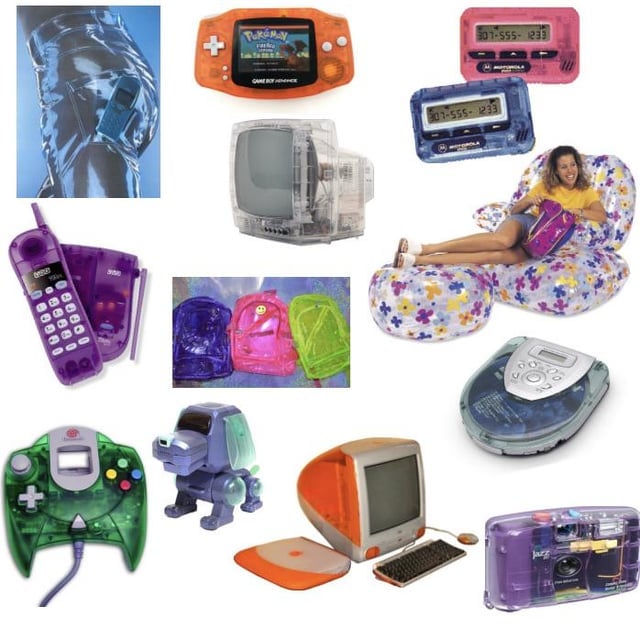
I mean LOOK AT IT it's so much cooler than just a box!
The SteamDeck community has been cooking with some clear cases which I would buy if I didn't have to risk breaking my beloved $500 indie machine.
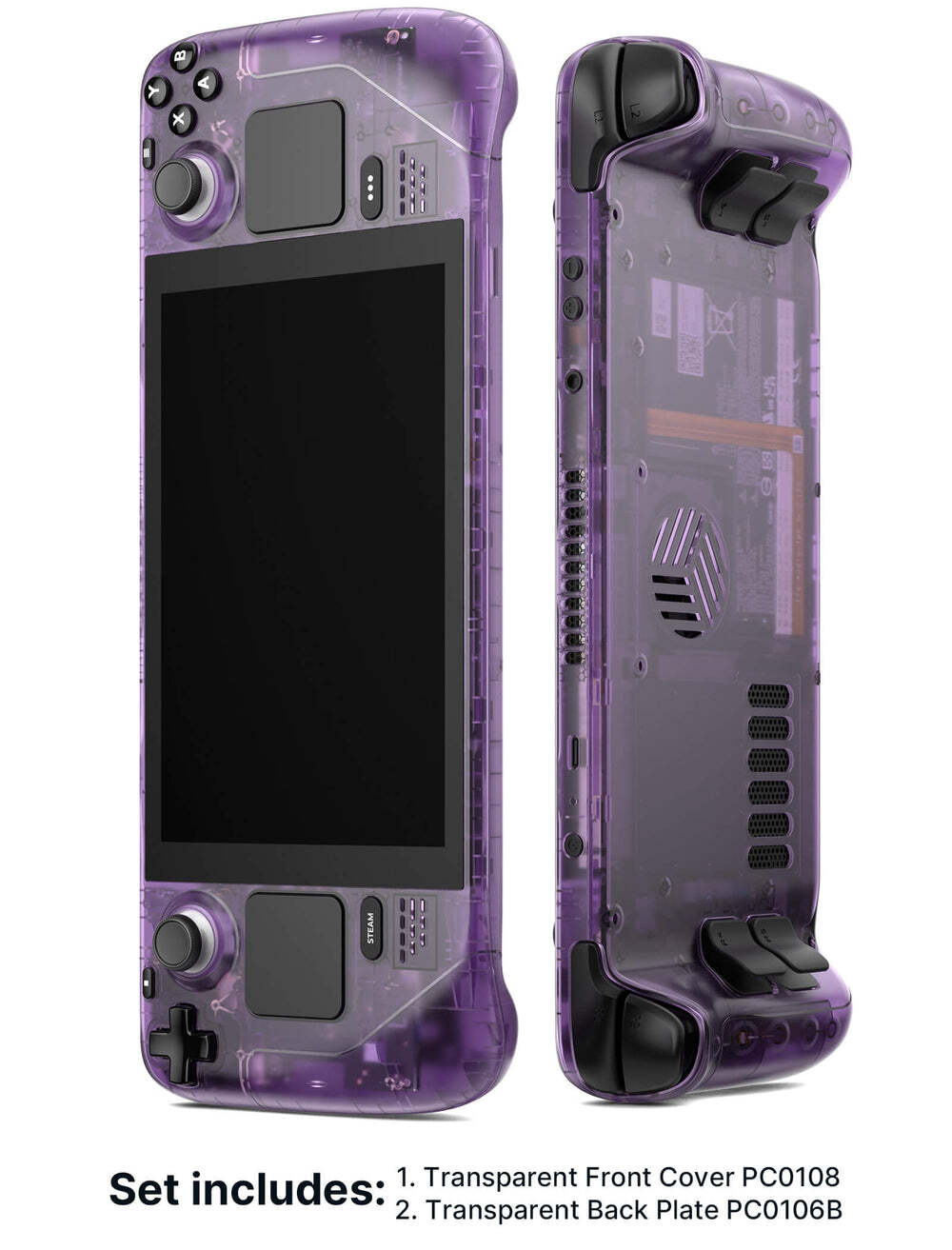
Pop up headlights! Way cooler that way. I've heard a couple reasons given for why they stopped being a thing, but one of them is that they were considered too unsafe for pedestrians-
Which is a fucking crazy though when you consider what we now blindly accept in automotive design with respect to pedestrian safety 😅
The internet?
Web 1.0 and even before was way cooler than this corpo bullshit web we have now.
Any mechanical regulation process that used to be handled by actual machine parts. Think of the centrifugal governor, this beautiful and elegant mechanical device just for regulating the speed of a steam engine. Sure, a computer chip could do it a lot better today, and we're not even building steam engines quite like those anymore. But still, mechanically controlled things are just genuinely a lot cooler.
Or hell, even for computing, take a look at the elaborate mechanical computers that were used to calculate firing solutions on old battleships. Again, silicon computers perform objectively better in nearly every way, but there's something objectively cool about solving an set of equations on an elaborate arrangement of clockwork.
Home stereo systems. As a kid I remained enthralled by the metal face and the heavily tactile buttons and switches and knobs. You felt a delicious variety of feedbacks for every action you took. I honestly think we really lost something special when tactility left technology. It was so satisfying to just use.
Bicycle shifters.
The first iteration that could be operated without stopping was the Campagnolo Cambio Corsa.
To shift, you had to reach behind you, where there were 2 levers.
The first one loosened the rear axle so it could move freely back and forth in the dropouts.
The second one had an eyelet you could use to move the chain sideways.
You put the chain on a different cog, and the rear wheel jumped forward or back due to the changed chain length.
Then you tightened the rear axle again.
It's terrifyingly beautiful:
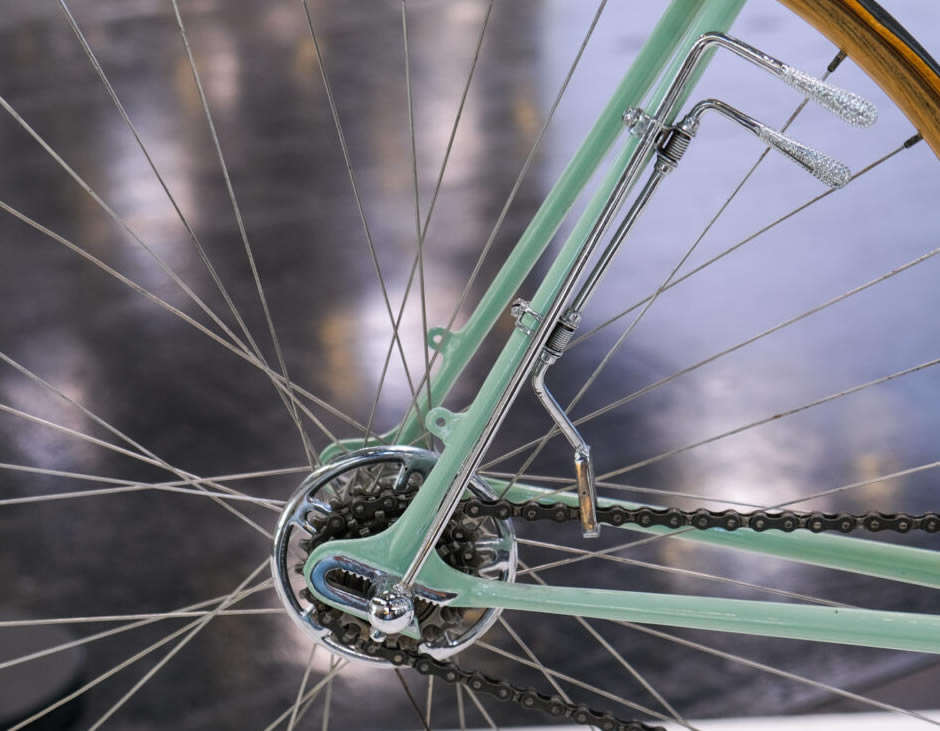
To make sure I understand, you reached back and grabbed those levers while pedaling and riding the bike?
How many people lost fingers by sticking them into the spokes, I wonder?
This sounds like a gadget specifically designed to make people fall off their bikes and break their bones.
......... Cool.
A lot of older tech had a way more interesting silhouette. You can see this clearly in how many objects live on in icon form. We still often use handset phones, magnifying glasses, gears, or the infamous floppy disk save icon. I think the staying power of these really comes from how ephemeral and formless digital tech can be.
Ships' sails. I mean, I know some small vessels still use them, but look at any paintings from 1500s-1800s and tell me those huge white pieces of cloth don't look cool.
Toasters. Specifically the Sunbeam Radiant Control toaster, with the tag line "Automatic Beyond Belief!". There is a fan site (https://automaticbeyondbelief.org/, excellent url). Like, what other appliance line has a fan site? Surely no modern day toaster!
But of course I first heard about it from Technology Connections video.
Clothing and towels made with asbestos fabric. During the middle ages you could clean them by throwing them in the fire and they would come out clean. Eventually your lungs would give up on you but for a while you had a very cool way to impress your guests.
.... We (as in humanity) made a lot of cool shit before we realised it was slowly killing us.
Once widely used, the number of operational lighthouses has declined due to the expense of maintenance and the advent of much cheaper, more sophisticated, and more effective electronic navigational systems.
They were quite important for a long time. We used them for thousands of years, and they're often unique in form, iconic. And they're a good subject for photos and paintings, and I think that the light effect from them is neat. Lots of books and such using them, like ones on remote rocks, to get an isolated setting ("the lone lighthouse keeper").
But the past few decades of technological advancement have probably closed the end of their era.
A nixie tube is a bunch of tiny lightbulbs shaped into numbers in a single pack with different pins each turning on a number.
Clearly the modern number display is better in many ways, but you were asking for coolness.
The original tv remote didn't use batteries. It used sound. Giant clunky devices with large tactile buttons. Never runs out of batteries and still works if your kid tries to block the screen to keep you from turning it off
Before transistors there were vacuum tubes which did the same thing but using very different principles (and were also way bigger, even than traditional transistors and billions of times more than the transistors in the most modern ICs)
Before electric milling or even steam milling, flour used to be milled using watermills and windmills which, IMHO, are way cooler.
Neither sure how to call it, nor is it a technology, more like a mindset. I am just gonna name it: "Prideful Craftsmanship"
Basically the incorporation of "useless" decorations and embellishments, to show off ones skill and maybe market oneself a little. Definitely superseded in the capitalist world. Things were just prettier or more interesting to look at, even stuff that wasn't meant to be flashy.
But with nearly everything being made to a price point, this practice has been somewhat lost.
CDs and DVDs, because ownership beats convenience when you can get them second hand for pennies on the pound
I was thinking the other day how much cooler flap displays at stations and airports were compared to modern displays.
Such a nice interface between computer control and a purely mechanical display. Watching them update, flipping through all the variables to land on the right one, and then clearing was so cool.
I miss the noise they made too. Haven’t seen one for like 20 years now.
I'm biased because I'm building up a small collection, but radios were cooler when they were made of Bakelite.
My modest collection:
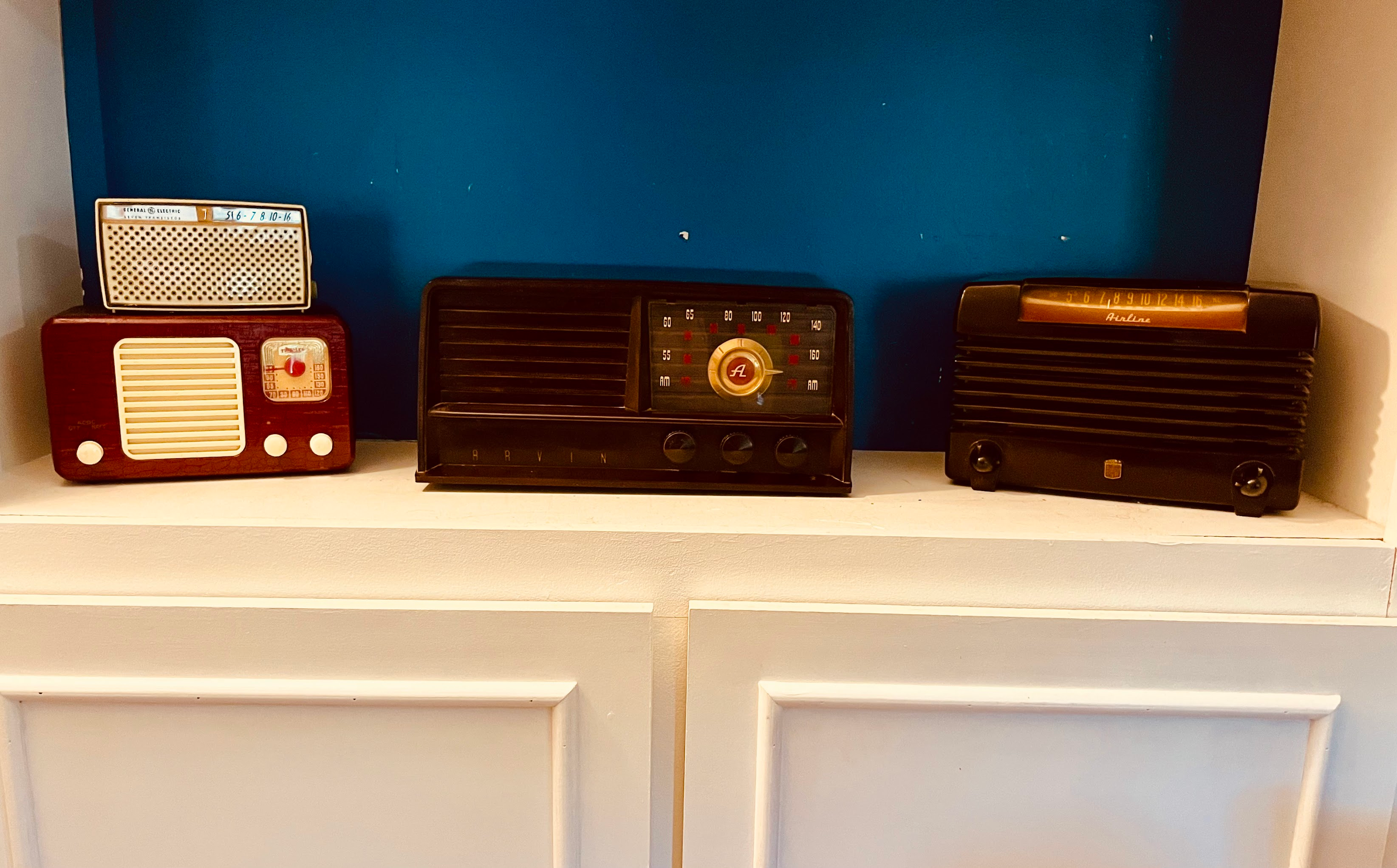
Also, I realize that digital tuning is more accurate, but there's something I find very pleasant about turning a knob and the station suddenly comes in clearly. Just that little "aha" serotonin hit.
Older forms of computer RAM.
Before integrated circuits, we had core memory which was a grid of wires and at each intersection was a little magnetic donut that held a single 1 or 0.
https://en.wikipedia.org/wiki/Magnetic-core_memory
Before that they had delay line memory, where they used vibrations traveling down a long tube of mercury, and more bits meant a longer tube to store a longer wave train.
Interchangeable automotive/bicycle parts.
Or for that matter, interchangeable anything parts.
Both cooler and better at the same time. Interchangeable parts made it easier to both customize and repair your own stuff..
I'm going back to video games that had multiplayer before we had network connectivity. If I wanted to play against a friend, we would have to get together in person and hang out. Game was done, you had a friend over for dinner. Or just a friend to come over and help you with the game. I miss when games were actual social events.